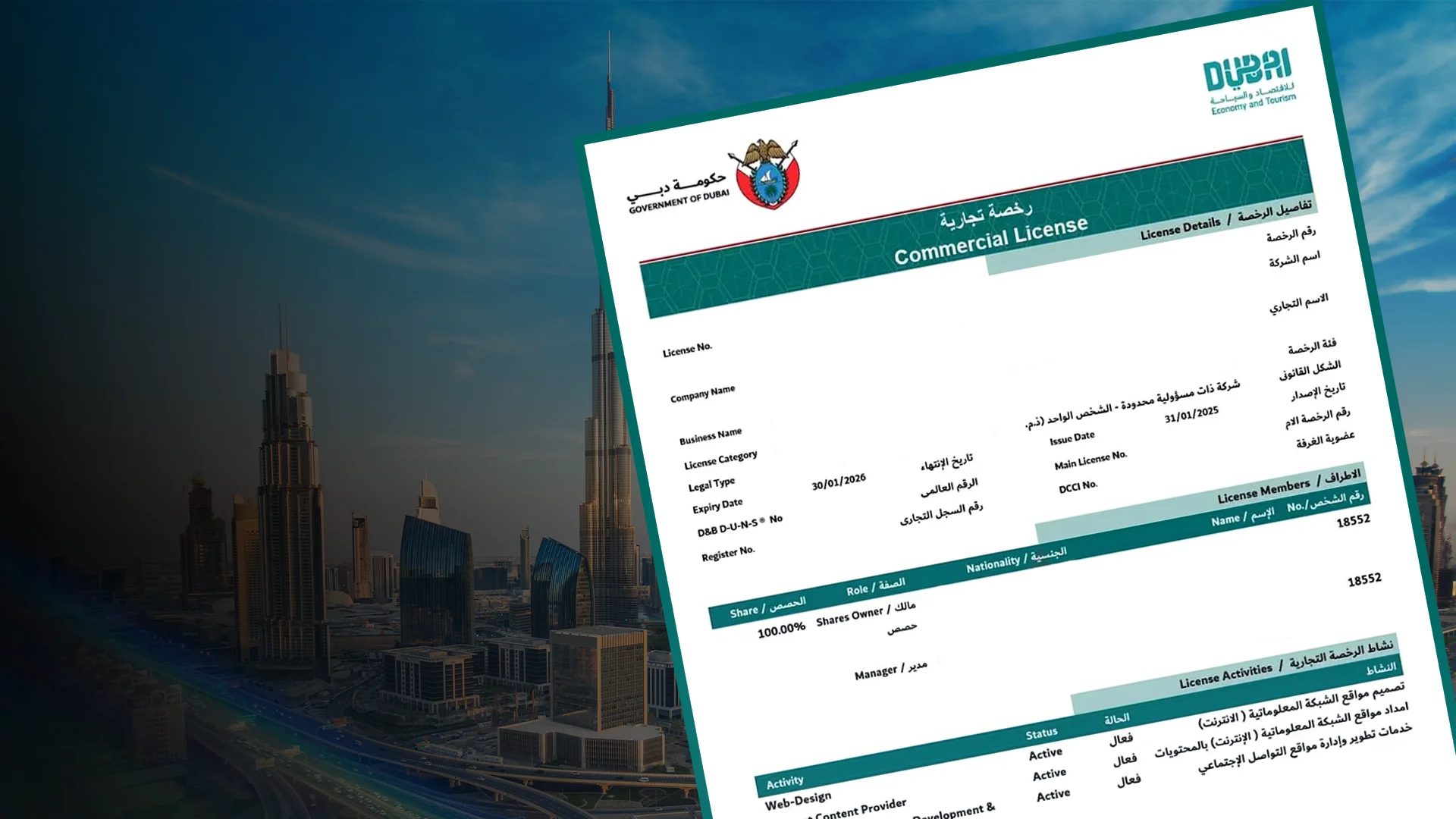
Topic Summary
1. Mandatory VAT Registration Thresholds
Businesses must register for VAT if their taxable supplies and imports exceed AED 375,000 annually. Voluntary registration is possible if the turnover is below this threshold but above AED 187,500. It is crucial to monitor your revenue to determine when registration is required.
2. Accurate Record-Keeping Practices
Maintaining precise and comprehensive records of all sales, purchases, imports, and exports is mandatory under UAE VAT law. Records must be preserved for at least five years and include invoices, receipts, and contracts to facilitate audits and VAT return filing.
3. Timely VAT Return Submission
VAT returns are typically submitted quarterly through the Federal Tax Authority’s online portal. Each return must accurately reflect the VAT charged on sales and the VAT paid on purchases, allowing for proper calculation of tax due or reclaimable.
4. Pricing Strategies Incorporating VAT
When setting prices, businesses must decide whether to display VAT-inclusive or VAT-exclusive amounts. Transparent communication with customers about VAT charges helps avoid confusion and ensures compliance with invoicing requirements.
5. Understanding Penalties for Non-Compliance
The UAE Federal Tax Authority imposes fines and penalties for late registration, late filings, inaccurate returns, and failure to maintain records. Ensuring timely registration and adherence to compliance obligations safeguards the business from costly legal consequences.
If you've just launched your business in Dubai, you are probably juggling a dozen things at once, finding clients, hiring people, setting up bank accounts. However, there's one crucial aspect that can't be overlooked: VAT registration in the UAE.
Whether your startup is small or scaling fast, staying compliant with VAT is non-negotiable. You don't need a finance degree or a tax consultant to get it right. What you need is clarity, structure, and a setup partner that understands what's at stake.
This guide lays it all out, thresholds, documents, filing steps, penalties, and shows you how Meydan Free Zone makes UAE VAT compliance a smooth, built-in part of your business journey.
What is VAT and Why It Matters for Your Business
VAT, or Value Added Tax, is a 5% tax added to most goods and services sold in the UAE. Introduced in 2018, it's now a key part of doing business in the country. Whether you are selling physical products, offering services, or importing goods, VAT touches almost everything.
But not everything is taxed the same way.
Here's a simple breakdown:
Even if you deal only in zero-rated goods, you still need to register and report your activity, that's where most new businesses slip up. At Meydan Free Zone, we flag these requirements early so nothing catches you off guard down the road.
Who Needs to VAT Registration in the UAE
VAT registration isn't just for large enterprises. If your sales cross a certain threshold, registration becomes mandatory and ignoring it can result in fines or delayed approvals later.
Here's how it works:
Mandatory Registration
- You must register if your taxable turnover exceeds AED 375,000 in a 12-month period
- Registration must be completed within 30 days of crossing that amount
Voluntary Registration
- Available for businesses earning between AED 187,500 and AED 375,000
- Helpful for startups and growing businesses that want to reclaim VAT on expenses
Exemptions
- Some activities, like residential leasing or local transport, are exempt from VAT
- If you operate in these sectors, you won't charge VAT, but you also can't recover it
At Meydan Free Zone, we help you assess where you stand and what the best registration path is, so you are fully informed and legally covered.
The Documents You'll Need to Register
VAT registration isn't overly complex, but it's detail heavy. Here's what you'll need to submit:
- A valid trade license
- Emirates ID of the owner or authorised person
- Contact and business address details
- Bank account information
- A brief business activity description
- Past financial records (sales invoices, turnover estimates, bank statements)
- Proof of office location, utility bill or lease agreement
When you set up with Meydan Free Zone, we collect, review, and submit all of this as part of your onboarding. No chasing paperwork. No errors that hold up your approval.
Step-by-Step VAT Registration Process in Dubai
VAT registration doesn't need to be overwhelming. If you are setting up through Meydan Free Zone, the entire process is streamlined, but it helps to understand the steps involved:
1. Create Your FTA Account
Set up an e-Services account on the Federal Tax Authority portal. This is your VAT dashboard going forward.
2. Complete the VAT Registration Form
Enter your trade license number, Emirates ID, business details, turnover estimates, and banking information.
3. Upload the Required Documents
This includes all your supporting files, IDs, licences, proof of address, financials, and activity summary.
4. Submit and Wait for Approval
Once submitted, your application is reviewed by the FTA. If everything checks out, they'll issue your TRN.
5. Receive Your TRN (Tax Registration Number)
Typically issued within 20–30 business days. This number is what you'll use to charge, report, and pay VAT.
At Meydan Free Zone, this full process is built into your business setup. No technical forms. There is no confusion. It's Just done-for-you VAT registration that gets it right the first time.
How VAT Filing Works in Meydan Free Zone
If you are registered for VAT, you are required to submit VAT return filings in the UAE either quarterly or monthly, depending on your tax period.
At Meydan Free Zone, our team manages your VAT return filing through Meydan Plus, so you don't have to handle calculations, forms, or deadlines yourself.
Here's what's covered:
- Preparation and submission of your VAT Form 201
- Accurate reporting of your taxable sales, expenses, and VAT owed
- Real-time compliance alerts and deadline reminders
- Payment tracking and submission to the FTA
Late filings can result in penalties of AED 1,000 fine for a first offence, AED 2,000 for repeat offences within 24 months, and a 2% penalty on unpaid VAT, plus daily accruals. At Meydan Free Zone, you won't have to worry about any of this. We handle the returns, so your business
stays compliant, and stress-free.
How to Calculate New Business VAT in the UAE
VAT math is simple. The real challenge is applying it correctly across every invoice, sale, and transaction.
Here's how to break it down:
- VAT Amount = Invoice Total × 5%
- Total Payable = Invoice Total + VAT
Example:
You sell a service for AED 10,000.
VAT = AED 500
Total charged to your customer = AED 10,500
You can choose to display VAT separately (exclusive pricing) or include it in your price (inclusive pricing). Either way, we'll help you establish a pricing structure that aligns with your business model and ensures tax compliance from the outset.
VAT for Free Zone Companies in Meydan Free Zone
Here's a common myth: Free zone companies are exempt from VAT. Not quite. Whether VAT applies depends on the type of free zone and the kind of transactions you are making. Let's clarify how it works at Meydan Free Zone:
Meydan Free Zone is a non-designated zone, which means standard VAT rules apply. That includes all sales, services, and invoices issued from your business.
The difference? We help you get it right, no missteps, no rework, and no fines.
Zero-Rated vs Exempt: What's the Difference?
Here's where VAT gets tricky, and where many businesses make early mistakes. Zero-rated and exempt might sound similar, but they're very different in how they affect your filings.
Zero-Rated Supplies (0% VAT, still reportable)
You don't charge VAT, but you must report these sales. You can also reclaim any VAT paid on related expenses.
Examples:
- Exports of goods and services
- International transport
- Certain education and healthcare services
- First sale or lease of new residential properties
Exempt Supplies (No VAT, not reported)
You don't charge VAT, and you can't reclaim VAT on expenses tied to these activities.
Examples:
- Residential property rentals
- Local passenger transport
- Certain financial services (e.g., life insurance, lending)
Confused about which one applies to you? Meydan Free Zone helps you classify your products and services accurately, so you file the right way, every time.
Can Your Business Claim a VAT Refund in Dubai?
Yes, and many startups don't realise they're eligible.
If you've paid more VAT on your expenses than you've collected from sales, you can request a refund through the FTA portal. This often happens when you are:
- Investing in capital-heavy equipment
- Dealing mostly in zero-rated exports
- Correcting past overpayments or errors
The process involves submitting Form VAT311, along with supporting documentation.
At Meydan Free Zone, we help prepare your refund claim as part of your managed VAT filings, giving you back what's yours without the paperwork headache.
Your Ongoing UAE VAT Compliance Checklist in Dubai
VAT compliance isn't just about registration. Once you are in, you need to stay aligned month after month. Here's a quick checklist to keep your business on track:
- Issue VAT-compliant invoices
Include your TRN, date, item descriptions, VAT breakdown, and total.
- File VAT returns on time
Usually quarterly. Due by the 28th day after each tax period ends.
- Maintain proper records
Store all invoices, returns, and financial documents for at least 5 years.
- Pay VAT on time
Missed payments can lead to daily penalties. Stay on top of your schedule.
- Use VAT-compliant software
Automated tools reduce human error, handy for small teams. With e-invoicing now increasingly expected across the UAE, using digital invoicing systems also ensures every invoice you issue meets FTA format requirements, stores data securely, and keeps your records ready for audits.
The good news is Meydan Free Zone automates most of this with built-in reminders and seamless VAT filing through Meydan Plus.
The Most Common VAT Mistakes, and How to Avoid Them
These are the errors we see most often from first-time founders:
- Misclassifying exempt vs zero-rated supplies
- Registering late (or not at all) after crossing the threshold
- Filing inaccurate returns or missing key invoice details
- Not keeping proper financial records for FTA audits
- Forgetting to factor VAT into pricing, and losing margin
At Meydan Free Zone, we've built a system to identify and address these issues before they become problems. You'll never file late, under-report, or miscalculate, because our team is always one step ahead.
Conclusion: Start Smart with VAT Registration UAE
Understanding VAT registration in the UAE rules isn't just a compliance issue, it's a business survival skill. Early-stage errors can snowball into fines, bank delays, and rejected visa applications.
Whether you are just crossing the registration threshold or filing your first return, Meydan Free Zone ensures your VAT journey is smooth, accurate, and fully compliant.
We don't just register your business, we keep it protected, prepared, and perfectly aligned with VAT requirements in Dubai from day one.
Book your consultation with Meydan Free Zone. Let's handle your VAT so you can focus on building something bigger.
FAQs
1. Who must register for VAT in the UAE?
Any business with a taxable turnover above AED 375,000 must register for VAT. Voluntary registration is allowed from AED 187,500.
2. Do free zone companies need to charge VAT?
Yes. Unless the free zone is designated and specific conditions are met, free zone companies, including those in Meydan Free Zone, must charge VAT on taxable supplies.
3. How often do I file VAT returns in Dubai?
Most businesses file quarterly, though some file monthly depending on their tax period.
4. How can I register for VAT in Dubai?
VAT registration is handled directly by Meydan Free Zone through our Meydan Plus service. We manage the full process for you, including document submission and TRN issuance.
5. Can I claim VAT on business expenses?
Yes, as long as the expenses relate to taxable business activities, and you hold valid tax invoices. We can help ensure claims are filed correctly.
































